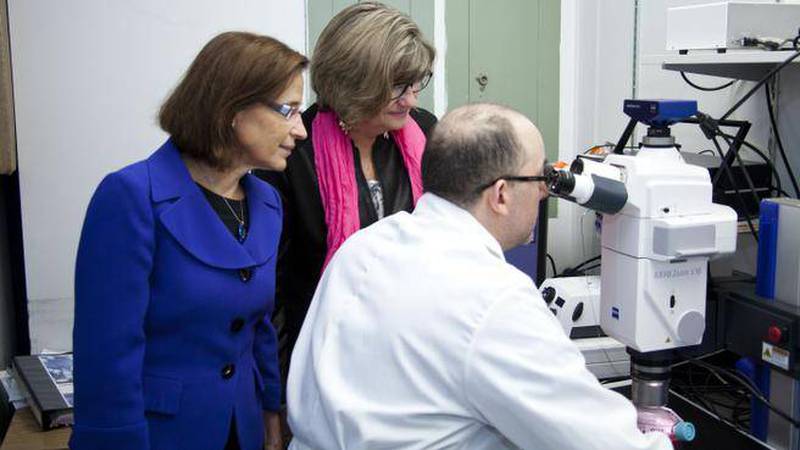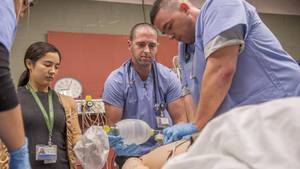For Dr. Graham Dellaire, zebrafish are the new guinea pigs.
“Zebrafish share 70 per cent of the same genes with humans. That makes them an extremely good laboratory animal.”
Dalhousie University is home to one of the largest zebrafish facilities in North America, the Zebrafish Core. In collaboration with Dr. Jason Berman, the facility’s director, Dr. Dellaire studies the ways cancer cells develop resistance to cancer drugs by injecting tumours into the guppy-sized aquarium fish. It’s landmark research that may lead to better ways to fight and control cancers, including breast cancer.
Dr. Dellaire’s laboratory is one of a number of cancer-related research projects that will receive new funding through the QEII Foundation thanks to a $1.5-million grant from the Breast Cancer Society of Canada, a nonprofit organization dedicated to funding Canadian breast cancer research. Part of the funds will be used to train new researchers, according to Breast Cancer Society executive director Marsha Davidson. “About one third of the $1.5-million is for trainees,” she says. “It’s very important, to bring new talented researchers into the process.”
In Nova Scotia, one in nine women will face a breast cancer diagnosis and every second day a Nova Scotia family loses someone to the disease. This alarming reality continues to bring together key organizations as partners in advancing breast cancer research and treatment. The QEII Foundation's long-standing partnership with the Breast Cancer Society of Canada and the Beatrice Hunter Cancer Research Institute enables these funds to support research initiatives that are bridging the worlds of scientific discovery and breast cancer treatment for patients.
Marsha says that while there is still no definitive cure for breast cancer and other forms of the disease, research has made huge strides in the past two decades in improving cancer survivability.
Research is also making great headway in finding ways to help people living with the cancer. “Twenty years ago, cancer was considered an acute disease,” she says. “Today it is often classified as a chronic disease. Part of the research we fund is looking into ways of helping people to effectively live with cancer.”
Ann Smith is a Halifax-based attorney and president of the board for the Breast Cancer Society of Canada. She says that donations to research facilities such as the QEII and Dalhousie University give local donors, fundraisers and supporters the opportunity to see their donation money at work.
“It’s important that our dollars are being used here in Nova Scotia to fund research that’s taking place right here in this province,” she says. “It helps for people to know what’s going on in their own back yard.”








